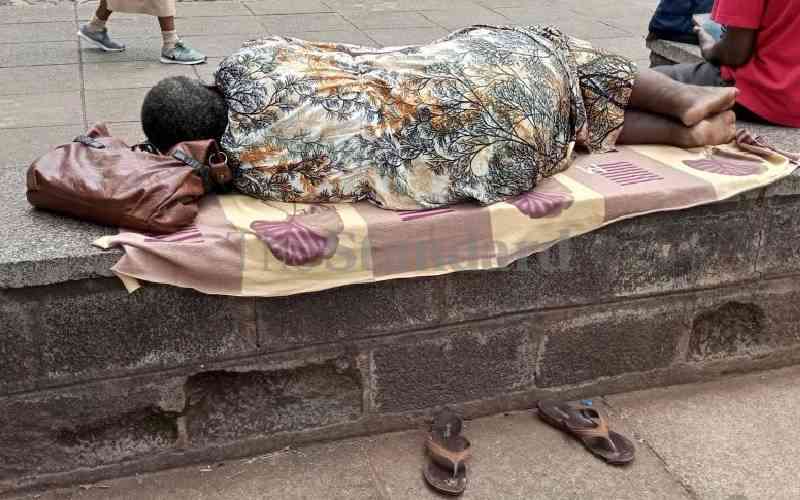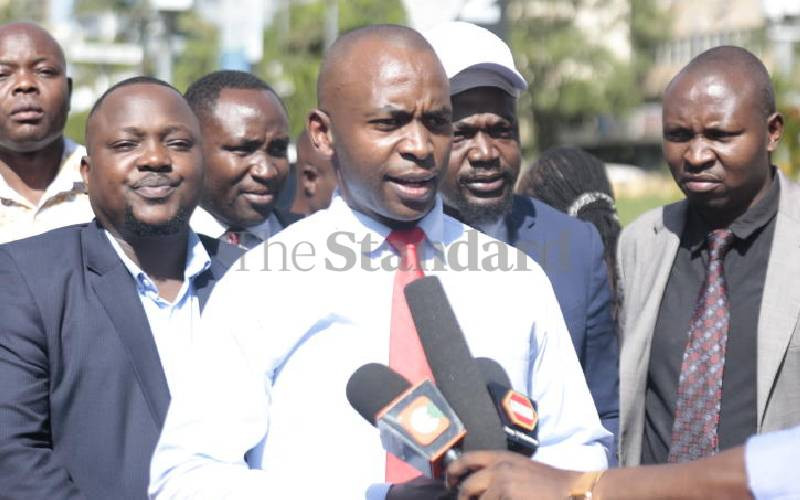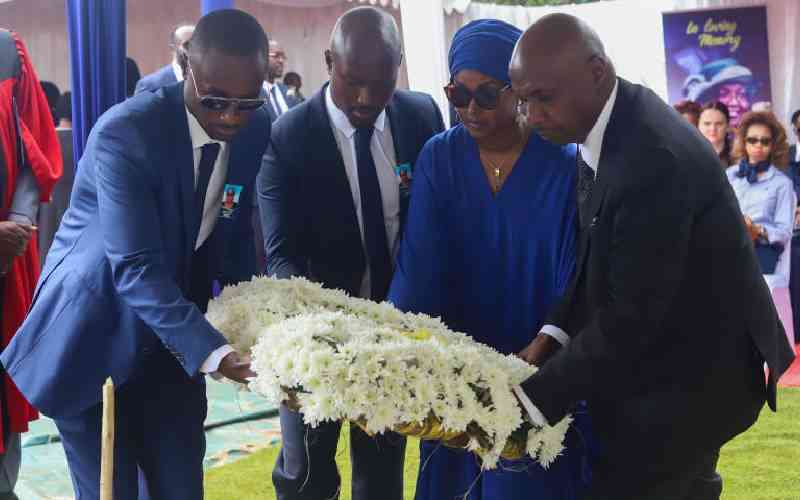Signing a will before her departure to Ebola-hit West Africa highlighted the probably grim task that awaited Lydiah Mukhaye, a nurse with 29 years’ experience as a healthcare worker.
Ms Mukhaye was among the health workers at Kenyatta National Hospital who had offered to join their counterparts from other parts of the world to battle the deadly disease that has so far claimed over 10,704 people.
But when she landed in Liberia early this year, she was surprised to find the country was not a death camp as she had initially thought. She has since completed her assignment and returned to the country.
And yesterday, Mukhaya, a mother of four, was honoured among other nurses for her bravery at KNH’s launch of the National Nurses Week, a day prior to the national launch.
Mukhaye shared her experience about her sojourn in Liberia where she spent four months with 23 other health professionals from different parts of the world tending to the sick.
“I was one of the nurses trained in Ebola management at KNH so I did not hesitate when people were asked to volunteer. I had dealt with suspected Ebola cases at the hospital, but I was curious to see how the disease manifests itself in someone. I figured out since I had not contracted any disease at KNH in all my years as a nurse, Ebola would not get me. But of course I promised myself to be careful,” she said.
Her husband, a lawyer, Mukhaye explained, surprisingly allowed her to leave for Liberia after she convinced him she had adequate training, but only after she signed a will just in case she did not make it back home.
“I expected to see dead bodies all over the place, but the people went about their lives like nothing was wrong. First thing we did when we landed was wash our hands with chlorine and the two weeks that followed were of intensive training by the United States Army under the World Health Organisation on how to protect ourselves. The especially focused on how to put on and take off protective clothing,” she explained.
She was assigned to the Sinjey Treatment Centre in Cape Mount County in the north western part of the country. She pointed out that they were advised against walking alone, using any form of public transport and buying items from the open market. Human physical contact was also prohibited.
She added that a health worker would never attend to a patient alone in case the protective clothing slipped.
“There is no emergency with Ebola. Even if a patient comes in convulsing, you have to take time to protect yourself and even more time taking off the protective gear to ensure the outer part does not come into contact with you,” she added.
While Mukhaye said seeing Liberians going about their daily activities normally made her overcome her fear, she had a major scare.
Fell sick
“At some point, I started having severe headaches, diarrhoea and vomiting and even fainted. My symptoms made the case definition so I was quickly rushed to a hospital in Monrovia. I was there for three days and even started saying my last prayers because I knew I had contracted the disease,” she narrated.
Her husband was alerted about her condition, but, luckily, she was cleared after three days. Mukhaye stayed on to continue battling the disease that had killed thousands across at least three countries. Her story underlines the sacrificing nature of the nursing profession, one of the nursing pillars that will be celebrated during the week-long celebrations.
Stay informed. Subscribe to our newsletter
The celebrations at KNH saw different departments given awards for outstanding work, with Lydia being among seven health professionals honoured with the Nightingale Warriors Award, named after the founder of modern nursing, Florence Nightingale. The official national launch of the Nurses Week is expected to take place today (Tuesday) in Baringo County.
 The Standard Group Plc is a
multi-media organization with investments in media platforms spanning newspaper
print operations, television, radio broadcasting, digital and online services. The
Standard Group is recognized as a leading multi-media house in Kenya with a key
influence in matters of national and international interest.
The Standard Group Plc is a
multi-media organization with investments in media platforms spanning newspaper
print operations, television, radio broadcasting, digital and online services. The
Standard Group is recognized as a leading multi-media house in Kenya with a key
influence in matters of national and international interest.
 The Standard Group Plc is a
multi-media organization with investments in media platforms spanning newspaper
print operations, television, radio broadcasting, digital and online services. The
Standard Group is recognized as a leading multi-media house in Kenya with a key
influence in matters of national and international interest.
The Standard Group Plc is a
multi-media organization with investments in media platforms spanning newspaper
print operations, television, radio broadcasting, digital and online services. The
Standard Group is recognized as a leading multi-media house in Kenya with a key
influence in matters of national and international interest.








